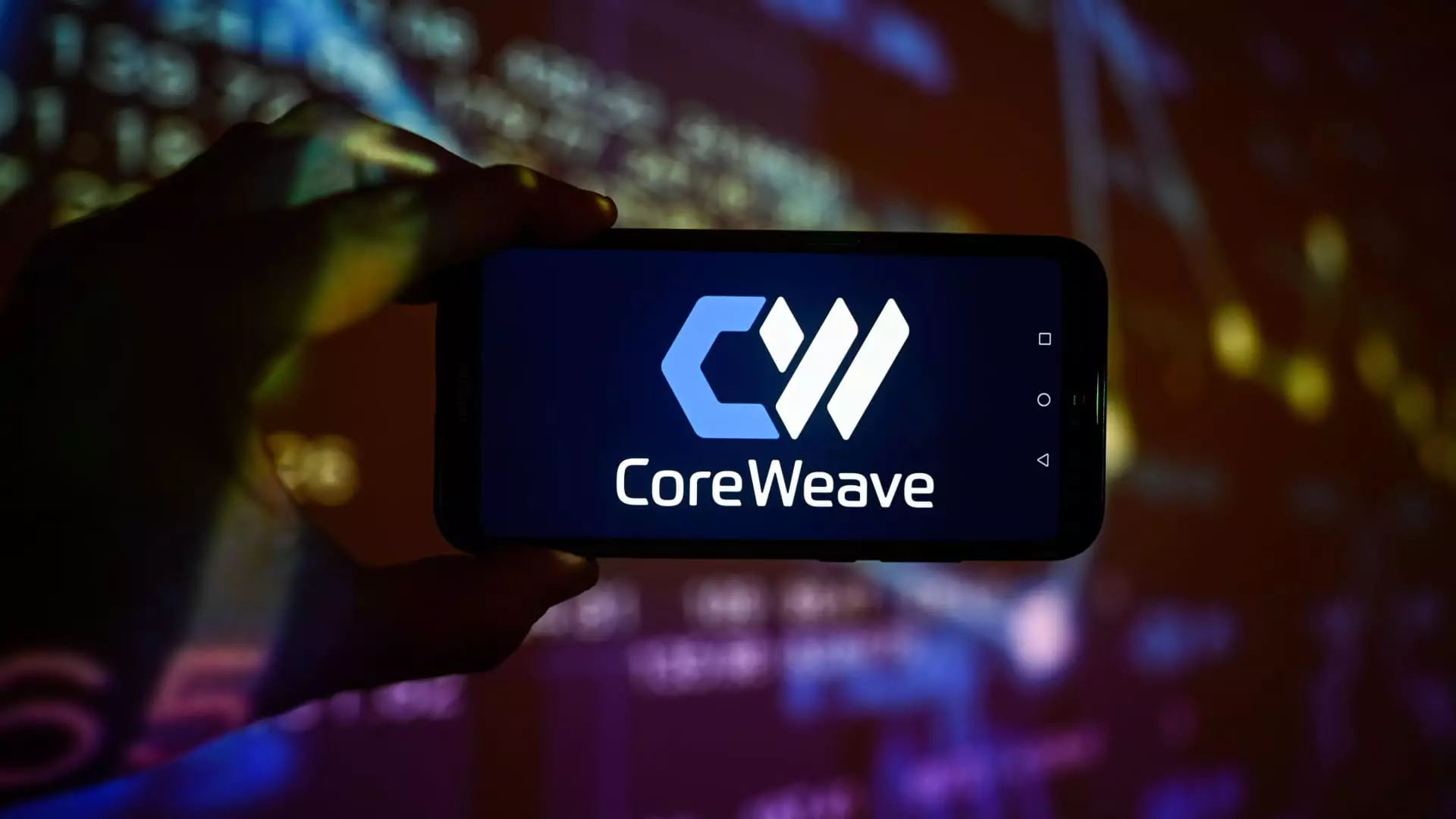CoreWeave, a promising artificial intelligence startup with backing from Nvidia, has made headlines with its announcement of a significant $650 million credit line aimed at bolstering its operations and expanding its footprint in the competitive data center space. This move is underscored by the substantial financial backing CoreWeave has secured in recent months, with $12.7 billion raised through equity and debt financing over the past 18 months. This includes a remarkable $1.1 billion round completed in May, which catapulted the company’s valuation to a staggering $19 billion. With aspirations of establishing 28 new data centers in pivotal locations such as Austin, Chicago, Las Vegas, and even across the Atlantic in London by the end of 2024, CoreWeave’s growth strategy is both ambitious and aggressive.
The demand for AI capabilities is skyrocketing, and companies like CoreWeave are stepping in to fill the growing need for advanced cloud infrastructure. AI models require an immense amount of computational power to build and train, which primarily comes from specialized hardware like graphics processing units (GPUs). Nvidia has been the leading provider of these essential chips, essentially forming a backbone for many AI initiatives across the tech industry. As organizations invest heavily—often hundreds of millions, if not billions, into the technology—the partnerships between companies like CoreWeave and major tech firms such as Microsoft and international AI startups are pivotal.
With a reported $2 billion in revenue contracts for the upcoming year, CoreWeave is strategically poised to capitalize on this spiraling demand for AI resources. The company’s ability to provide essential hardware not only attracts significant clients but also positions it as a competitor in the burgeoning market.
The financial landscape around artificial intelligence is transforming, with prominent financial institutions like Goldman Sachs, JPMorgan Chase, and Morgan Stanley leading the recent financing efforts for CoreWeave. This trend highlights a broader movement among banks, who are keen to secure a place in the potentially lucrative AI sector. As banks and financial institutions acquire a stake in companies at the forefront of this technology boom, they are looking toward a future where generative AI could generate revenue exceeding $1 trillion by 2032, as several industry analysts predict.
Notably, the recent infusion of credit isn’t merely a lifeline; it represents strategic foresight. The funds will allow CoreWeave to quickly gear up for expanding its technological capabilities and infrastructure, making it better equipped to respond to new market opportunities as they arise. Mike Intrator, CoreWeave’s co-founder and CEO, emphasized this sentiment by stating that the credit line provides the necessary liquidity to help accelerate their growth strategy in the rapidly changing AI domain.
As the AI industry gears up for a projected period of growth, other companies are establishing similar financial strategies. OpenAI, a recognized player in the field, recently acquired a revolving credit line worth $4 billion along with a total liquidity exceeding $10 billion, reflecting the lucrative nature of this sector. With many of the same financial institutions engaging across various funding rounds, it is clear that banks are not just monetizing the present but are preparing for an AI gold rush that seems set to unfold in the next few years.
While CoreWeave has not publicly disclosed the specifics regarding the interest rates or terms associated with its latest credit facility, its successful fundraising paints a picture of confidence and optimism in its capacity to thrive in this competitive arena. The trajectory appears promising: CoreWeave’s expansion plans across the United States and beyond, coupled with its strategic collaborations and financial backing, could position it as a significant player in the future of AI infrastructure.
CoreWeave’s latest move to secure a $650 million credit line is indicative of the larger trend in the artificial intelligence sector, where startups are jockeying for a competitive edge amid rising demand for AI infrastructure. With robust financial backing and ambitious expansion plans, CoreWeave is not only focused on its growth but aims to facilitate the broader ecosystem that is swiftly evolving around AI technology. As companies race to implement groundbreaking models and technologies, those that can strategically position themselves will likely emerge as industry leaders. Thus, the upcoming years could herald a significant shift in the tech landscape, powered largely by the innovations and expansions of companies like CoreWeave.

